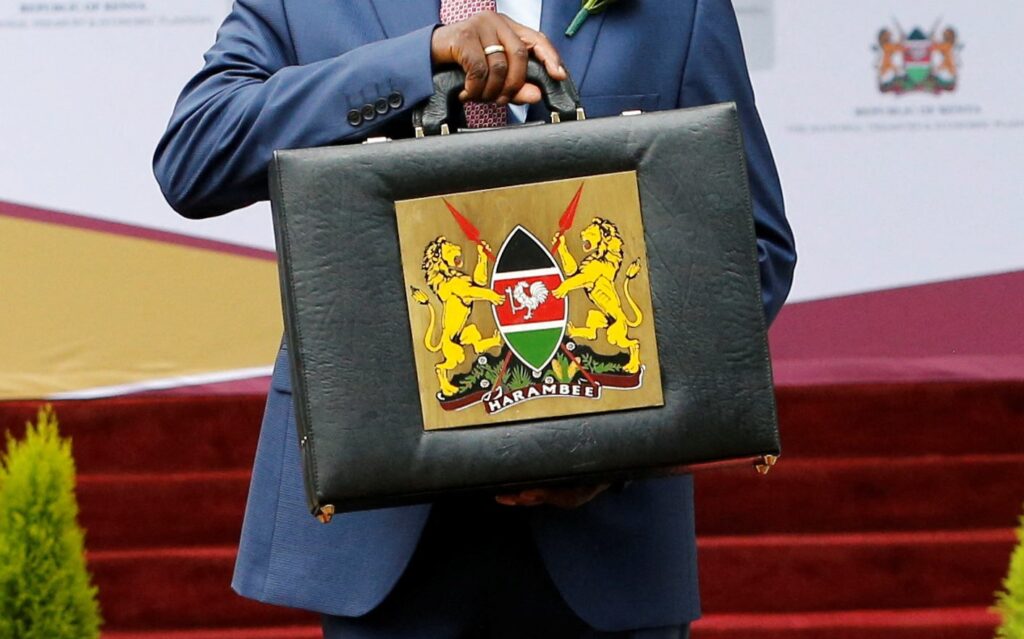- Efficient public spending in Kenya has been elusive over the year with the East African country forced to borrow to meet its budget
- Further the firm is recommending more performance based incentives for industries by the government to enable grow the jobs offering.
- PwC adds that Proposed allocation of Sh4.5 billion for County Aggregation and Industrial Parks (CAIPs) will help to reduce post-harvest losses.
Experts are warning Kenyans to brace for a tough 2024-25 financial year as the government moves to ramp up revenue measures to finance the recently released budget.
A post budget analysis by Audit firm Deloitte has revealed that the new year will be a hard one for Kenyans and will require fiscal discipline to navigate.
Doris Gichuru, partner for tax and legal at Deloitte says that Given the Finance Bill 2024 there is going to be a challenge in private consumption from the various measures though indirect in nature.
This she says will shape the consumption trends where the purchasing power of Kenyans is expected to decline with services sector is expected to take the biggest hit.
“Kenyans currently spend more than they earn so if we continue with the finance bill there is going to be an increased pressure and then People will only spend on what is essential,” said Gichuru.
Further the firm is recommending more performance based incentives for industries by the government to enable grow the jobs offering.
Deloitte East Africa CEO Anne Muraya said the policy measures outlined in the 2024 BPS are expected to improve economy-wide efficiencies, create an enabling environment that supports growth in businesses and investment, reduce the cost of living, and enhance the well-being of all Kenyans.
She adds that while this is the intent, there is a need to assess the effectiveness of increasing taxes to meet revenue targets, as that tends to have an inverse correlation.
“We have already seen a reduction in revenue collection following the tax increases in the previous fiscal year. There have been no significant efforts to increase the tax base, but instead, we keep seeing an increase in taxes on the existing base,” said Muraya.
The sentiments were echoed by PwC analysists who recommended for realistic revenue targets with corresponding fiscal consolidation to reduce pressure to borrow.
Read Also: Kenya spending 57 cents of every dollar on debt. Sustainable?
Calls for Efficient Public Spending in Kenya
PwC senior manager for government and public sector Anthony Njeeh, says that it is notable that budget cuts have happened in key sectors including education, agriculture, infrastructure, among others.
However, pointing out that it would be interesting to see the impact of this on new financial economic growth and provision of Government services.
“Although Kenya has experienced increased rainfall which is a contributor to the sector recovery, the occurrence of recent floods presents another challenge for recovery and adaptation not only in the agriculture sector but across aspects of the economy and the well-being of Kenyans,” PwC said in the post budget brief.
PwC adds that Proposed allocation of Sh4.5 billion for County Aggregation and Industrial Parks (CAIPs) will help to reduce post-harvest losses.
The CAIPs are special zones being set-up by the Government targeting all 47 Counties by FY 2025/26.
CAIPs will provide value addition centers for agricultural products as well as storage facilities. They will include investment in necessary infrastructure, to facilitate post-harvest management and prevent losses.
“Corruption, resource wastage, inefficiency, and negligence are threats that present significant headwinds to the Bottoms-Up Economic Transformation Agenda. They need to be addressed for effective use of public funds and resource mobilisation,” PwC noted in the brief.
Read Also: Consumer Expenditure in Kenya on a Six-Month High
